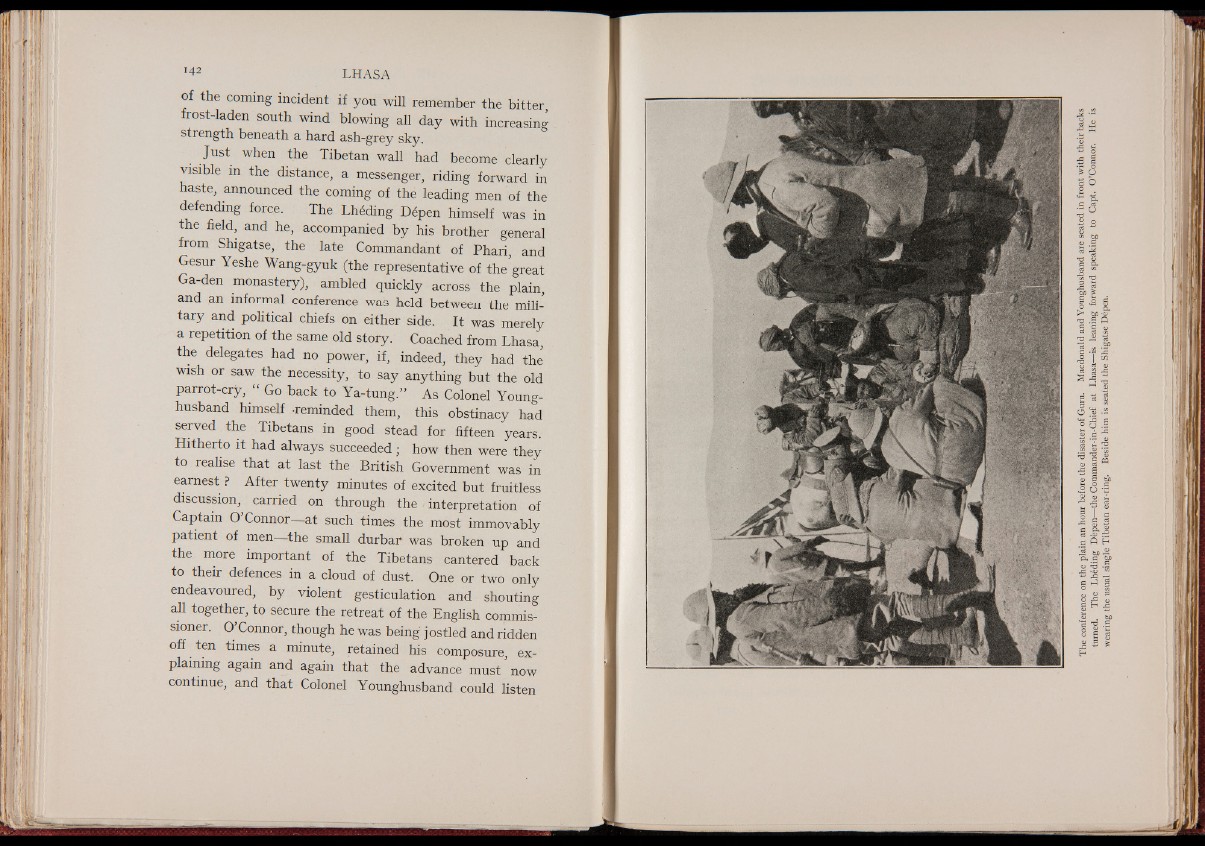
of the coming incident if you will remember the bitter,
frost-laden south wind blowing all day with increasing
strength beneath a hard ash-grey sky.
Just when the Tibetan wall had become clearly
visible in the distance, a messenger, riding forward in
haste, announced the coming of the leading men of the
defending force. The Lheding Depen himself was in
the field, and he, accompanied by his brother general
from Shigatse, the late Commandant of Phari, and
Gesur Yeshe Wang-gyuk (the representative of the great
Ga-den monastery), ambled quickly across the plain,
and an informal conference was held between the military
and political chiefs on either side. It was merely
a repetition of the same old story. Coached from Lhasa,
the delegates had no power, if, indeed, they had the
wish or saw the necessity, to say anything but the old
parrot-cry, “ Go back to Ya-tung.” As Colonel Young-
husband himself -reminded them, this obstinacy had
served the Tibetans in good stead for fifteen years.
Hitherto it had always succeeded; how then were they
to realise that at last the British Government was in
earnest ? After twenty minutes of excited but fruitless
discussion,^ carried on through the interpretation of
Captain O Connor— at such times the most immovably
patient of men— the small durbar was broken up and
the more important of the Tibetans cantered back
to their defences in a cloud of dust. One or two only
endeavoured, by violent gesticulation and shouting
all together, to secure the retreat of the English commissioner.
O’Connor, though he was being jostled and ridden
off ten times a minute, retained his composure, explaining
again and again that the advance must now
continue, and that Colonel Younghusband could listen